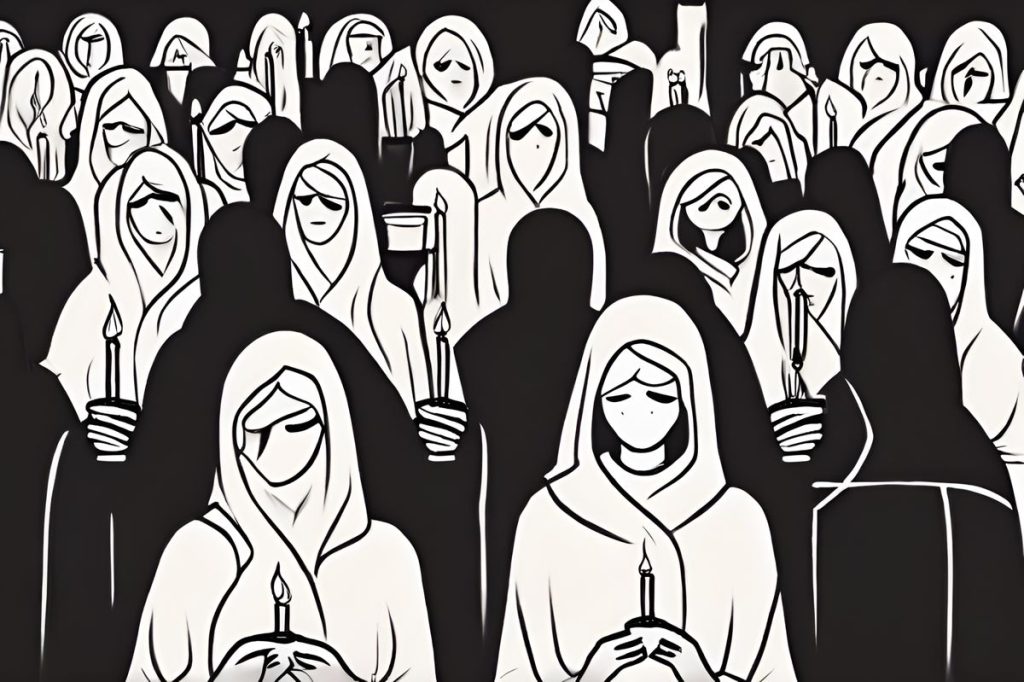The tragic death of Anisur Rahman during a police immigration raid in Limassol, Cyprus, led to protests condemning alleged racism and demanding respectful treatment for migrants. Investigations into police conduct and human rights adherence are ongoing, sparking a quest for transparency and justice within the Bangladeshi community.
What led to the protests in Cyprus following Anisur Rahman’s death?
The tragic death of Anisur Rahman, a 24-year-old Bangladeshi, during a police immigration raid in Limassol, Cyprus, sparked protests. The community condemned the harsh treatment of third-country nationals and alleged racism, demanding respectful and humane treatment for migrants. Investigations into police conduct and adherence to human rights are ongoing.
The Incident in Limassol
On an ill-fated day, the 10th of April, the Bangladesh community in Cyprus was shaken by the tragic death of a young man. Anisur Rahman, at the tender age of 24, lost his life under circumstances that have since sparked significant controversy and protests. During a police immigration raid in his Limassol residence, in an attempt to evade authorities, Rahman fell from his fifth-floor apartment. The incident has raised numerous questions about the methods employed during the operation and the treatment of third-country nationals in Cyprus.
The apartment, described as a listed dangerous building, was overcrowded, housing 11 individuals including Rahman. In the ensuing chaos, another Bangladeshi national, aged 22, suffered injuries while also trying to escape and was subsequently hospitalized. This event has ignited discussions regarding the living conditions of migrant workers and the stark realities they often face far from home.
The Response and Investigation
The aftermath of Rahman’s death has been met with significant public outcry. Protests erupted in both Limassol and Nicosia, with participants condemning the perceived racism and harsh treatment towards third-country nationals. These demonstrations clearly indicate a deep-seated frustration within the community and an urgent call for change.
As investigations unfold, the Honourary Consulate of Bangladesh in Cyprus has been actively involved. Roupen Paul Kalaydjian, the consulate representative, confirmed that arrangements were made to repatriate Rahman’s body back to Bangladesh, with the government covering the expenses. The consulate also received a police report that aligns with the official version of the events, a narrative that has been contested by some members of the Bangladeshi community who allege mistreatment by the police during the raid.
Divergent Narratives and the Quest for Truth
The police force has stood by their statement, asserting they acted within the boundaries of the law and had obtained consent from the tenants before entering the premises. This claim, however, stands in contrast to accounts from witnesses suggesting the police forced entry and exhibited abusive behavior.
In the pursuit of transparency and justice, the Ombudswoman of Cyprus, Maria Stylianou Lottides, has initiated an independent investigation focusing on the conduct of the police during the operation and the adherence to human rights protocols. The NGO Kisa has also lodged a complaint against the official police statement, indicating a clear divide between the experiences of the Bangladeshi community and the narrative provided by law enforcement.
Solidarity and Support
The Bangladeshi community received consular support when a delegation from the Embassy of Bangladesh in Beirut visited Cyprus. Their visit, which took place from April 26-29, offered various services such as issuing e-passports and renewing existing ones. These efforts reflect the close-knit nature and solidarity of the Bangladeshi diaspora in Cyprus, many of whom contribute significantly to sectors like tourism, hospitality, and academia.
As the community mourns the loss of Anisur Rahman and awaits the findings of the Ombudswoman’s investigation, there is a palpable demand for answers and accountability. The incident serves as a poignant reminder of the challenges faced by migrants and the essential need for respectful and humane treatment of all individuals, regardless of their country of origin.
What led to the protests in Cyprus following Anisur Rahman’s death?
The tragic death of Anisur Rahman, a 24-year-old Bangladeshi, during a police immigration raid in Limassol, Cyprus, sparked protests. The community condemned the harsh treatment of third-country nationals and alleged racism, demanding respectful and humane treatment for migrants. Investigations into police conduct and adherence to human rights are ongoing.
What was the incident involving Anisur Rahman in Limassol?
Anisur Rahman, a 24-year-old Bangladeshi, tragically lost his life during a police immigration raid in Limassol, Cyprus. While trying to evade authorities, Rahman fell from his fifth-floor apartment. The incident raised questions about police methods and the treatment of third-country nationals in Cyprus.
How has the aftermath of Anisur Rahman’s death been handled?
Following Anisur Rahman’s death, protests erupted in Limassol and Nicosia, condemning perceived racism and mistreatment of migrants. The Honourary Consulate of Bangladesh in Cyprus arranged for Rahman’s repatriation and is actively involved in the case. The Ombudswoman of Cyprus has initiated an independent investigation into police conduct and human rights adherence.
What support has the Bangladeshi community in Cyprus received following Anisur Rahman’s death?
The Bangladeshi community in Cyprus received consular support from the Embassy of Bangladesh in Beirut, with a delegation visiting Cyprus to offer services like issuing e-passports. The incident has highlighted the need for respectful and humane treatment of migrants, prompting calls for accountability and justice.

